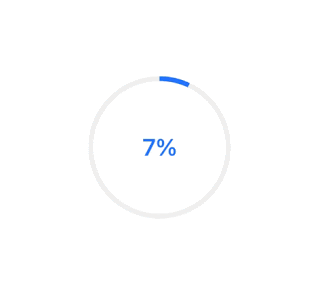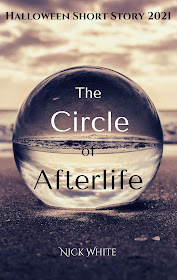Update: 2021
Anyone who tells parables has to decide whether they will explain them or not. In this case I'm trusting in your intelligence and imagination.
'Let those who have ears to hear, let them hear...'
There was once a good king, a king like the sun, who ruled over a cold island with three peculiar children. It was winter and they say that winter is the end of the story of the seasons. But it depends on when you start the story.
Some people hated the royal family, but that was because they tended to get a bad press. Most of the people thought the king was harsh. He always seemed to be on some long journey and his absence caused many of the people to doubt that he even existed. After all, he was never on TV or the internet.
From a distance, he often seemed negligent or downright cruel, if it is possible to be both at once. He did not do terrible things, but he allowed them and would not explain why.
Two of the royal children were as disobedient as vultures. But the third child was as faithful as a robin, refusing to fly away when the winter sun grew austere. Her kindness was all the more remarkable because she was unable to walk. She was as loyal as frost clinging to a car window (for which the people also cursed the king in the mornings).
There hadn’t been a real Christmas on that island for over a hundred years. Although there had been some imitations of it. No-one even knew what Christmas was like anymore. Those who had heard of it either thought it brutal and regressive (following a highly popular Netflix series about what Christmas may be like and a series of stereotypes which were expressed in the arts and media about the character of those who might like Christmas) ... Or else they thought it was yet another money-making scheme, heavy on the merchandise and manipulation.
But the faithful robin-child, after reading of true Christmas, asked her father if they could celebrate too… as the people in far-off places were said to do. She had only read stories of Christmas and it was because she had lost a friend in one of the past winter months that she found her courage.
She entered the throne room in her wheelchair and the king looked sadly at his cold iron sceptre, like a man haunted by ghosts which only he knew about.
"We need Christmas father. Things are getting worse on the island," said the robin-child.
"The island is sick," replied the king.
"Then there is hope of healing. You have healing in your power."
"What do you think Christmas should be like anyway?" the king asked, "Like water? Like the sea's tide turning? Like rain after a drought? Like a river flowing?"
"I don't know."
"Or like the earth? Like an earthquake and a shaking, or a kind of sifting of the good and bad?"
"No not that, Christmas should be for everyone and that sounds destructive."
"Or like the air? Like a wind blowing across the land? Like a change in the atmosphere?"
"I don't know."
"Or like fire? Like tongues of flame? Like a wildfire?"
"I simply think it should be like a new, better season. Like Christmas in the old stories."
But the king went on to tell his daughter yet again that if his children and people continued to misbehave, they would never see Christmas. It was within his power to make the winter months warmer and lighter since kings and queens still hold great power. But it was catch 22 – without the comfort of Christmas, people found it hard to behave, but if they did not behave, the king would not give them Christmas. The king's conditions felt very patronising and simplistic.
It had become increasingly dark and cold in those winter months in so many ways. And the dark and cold had soaked into the hearts of the people, so that even the streets saw puddles of blood. The blood had a voice, but by this time only the king could seem to hear it. Nobody cared about all kinds of roses crushed underfoot. Gentleness had emigrated. It was as if the island was under a curse.
At the start of December, the king sat on his throne and wondered whether he should allow his island child her peculiar request. He was undecided, since two of his children were so naughty (they were always fighting and rarely did what he asked). When he told them to love, they hated. When he told them to forgive, they held grudges. When he told them to not be too proud and condescending towards the people, they simply looked down their noses at the less privileged. It had got so bad that the people were cursing the royal family because of the actions of the princes. “The royal family are judgmental bigots!” the people would sing. Or else, “The king is in the altogether, he’s altogether not there!” And blood on the streets didn’t help. The people would take strange, dangerous potions and dance wildly into the night or else treat each other as badly as the princes treated them.
The king wondered whether he should simply give a present to his daughter and ignore the others. But then he considered that Christmas should be for everyone and an exclusive Christmas had never happened before. But why Christmas on his island alone? There was the Commonwealth, and the people there could be said to be worthier? One last worldwide Christmas for everyone (even though that had never happened before). What had happened before can happen again, for good or for evil. He had told all his children to behave and they had largely ignored him. What should a good father do? He, did, after all, have his enemies and ghosts. And the land had enough problems already, ready to break and divide for the sake of a freedom which was only hoped in.
One of the naughty children didn’t believe Christmas was healthy, he thought it probably meant, a pair of socks as a present, a lot of disappointment and probably a lot of grief. He didn't like anything about Christmas. The other thought it was unlikely to happen again before the end of the world. He simply thought there would never be a genuine Christmas again. But the faithful robin child would read old stories and she believed that even if they were only to have one last Christmas it would be a good thing for everyone on the cold island. It would help them to prepare for the coldest and darkest of days. She too loved the people of the island.
But the winter winds pummelled them all and the thunder made it seem as if the sky may fall at any moment. And the naughty children started to doubt that their father really was good – not because they wanted Christmas, but because he seemed to allow so many bad things and then said it was some kind of test. And never explained why. The tests were always the same anyway, they were either endurance tests or self-control tests, but the king, because of his ghosts, considered that an unfair criticism. Kings can do that and you can't tell them that they are wrong.
The king had set out conditions for there to be a Christmas. He had said that if his children talked to him, keeping their conversations secret, and if they were well-behaved and if they trusted in him, he would give them Christmas once again and the Christmas would be both a relief and a healing for them all. Hearts would turn warm and there would be more light, like the light of a baby in a manger. But the trouble was that he had three children and only one of them was behaving. The majority were not. In a sense, it was because of the naughty children that the whole island did not get Christmas, especially the fault of the naughtiest leading prince who had been given more than the others and who was relatively healthy.
So, the king faced a quandary – he had promised that he would order Christmas throughout the land if all his children behaved. But how could they behave when all was cold and austere and there was no Christmas? The robin princess had talked to him on countless occasions about this, about how Christmas would be good for both him and the people, about how it would make things better, about how a good father should not deny the request of an obedient daughter simply because others were not so obedient. About how Christmas itself would swing the hearts and souls of people onto his side. About how, while he delayed, the people and the children suffered together. About how he had also promised to grant any request made persistently. About what kind of good father would deny Christmas to his children anyway? About how he wanted free will love from the people and he would get that if he gifted Christmas.
But the king simply looked at his cold iron sceptre, shrugged and said that unless his people and his children talked to him, behaved, and trusted in him, he couldn’t send Christmas.
“But you also once said nothing is impossible for you,” said the robin princess.
“These are the conditions,” said the father with a stern face that did not suit him.
“But you once said that even a bad judge would rule in favour of a petitioner if they persisted, and I have pestered you about this for years.”
“These are the conditions,” said the king, his face like flint (which did not suit one whose glory was supposed to be greater than the sun).
“But how can the conditions ever be met on this island where the streets drink blood without conditions changing so that the conditions are more likely to be met?”
“That doesn’t make sense.”
“Why must you win every argument?" replied the Princess, "It isn’t endearing. People are suffering. What kind of good father would deny Christmas to their children? You told us that you love us.”
So here is the quandary, the mystery and here is the parable – that the good and kind king had seen how cold and dark his land had grown and truly understood the suffering of his people (having lived as one of them, in another land, a long time ago). Yet he denied them Christmas, saying it was the fault of his enemies, or of his children, or of his ghosts. Saying that conditions needed to be met, saying that his timing was perfect. And often saying nothing at all.
And still, the faithful robin princess and the people waited to see if a good King and Father would really delay Christmas on that cold, dark island for reasons known only to himself and his ghosts. And the robin princess, her heart broken because of the blood on the streets, knew that the only thing left to do was to keep on asking.













